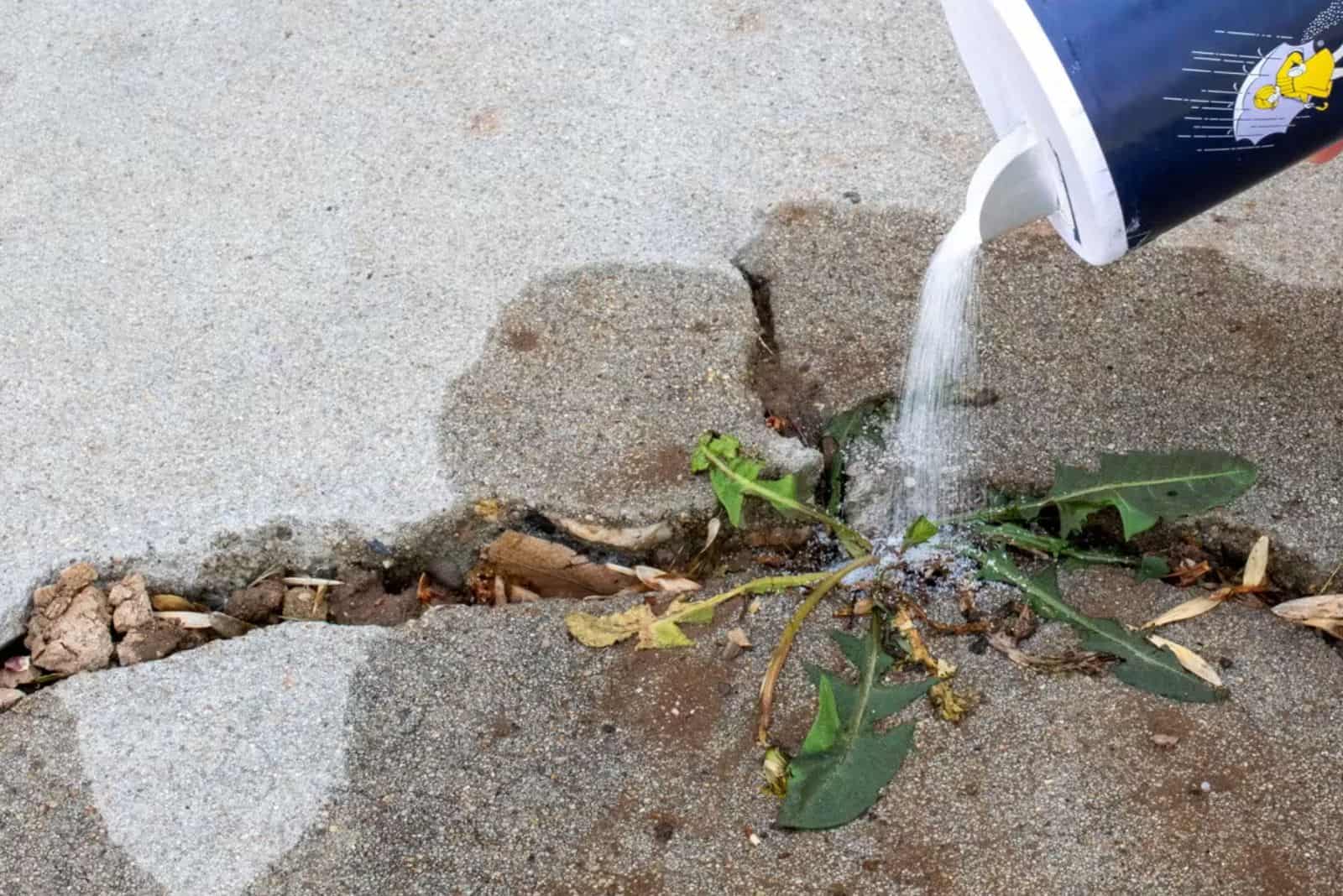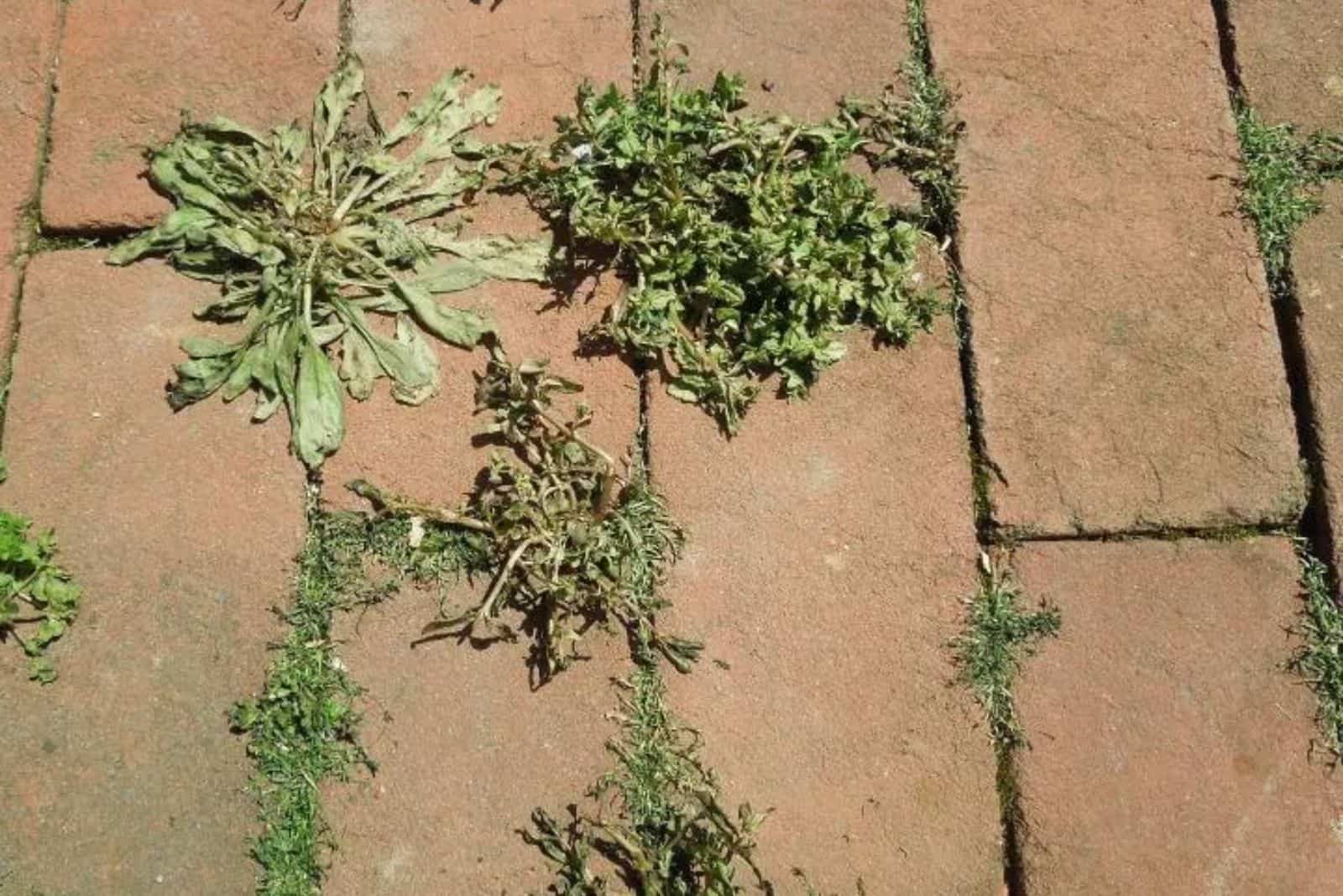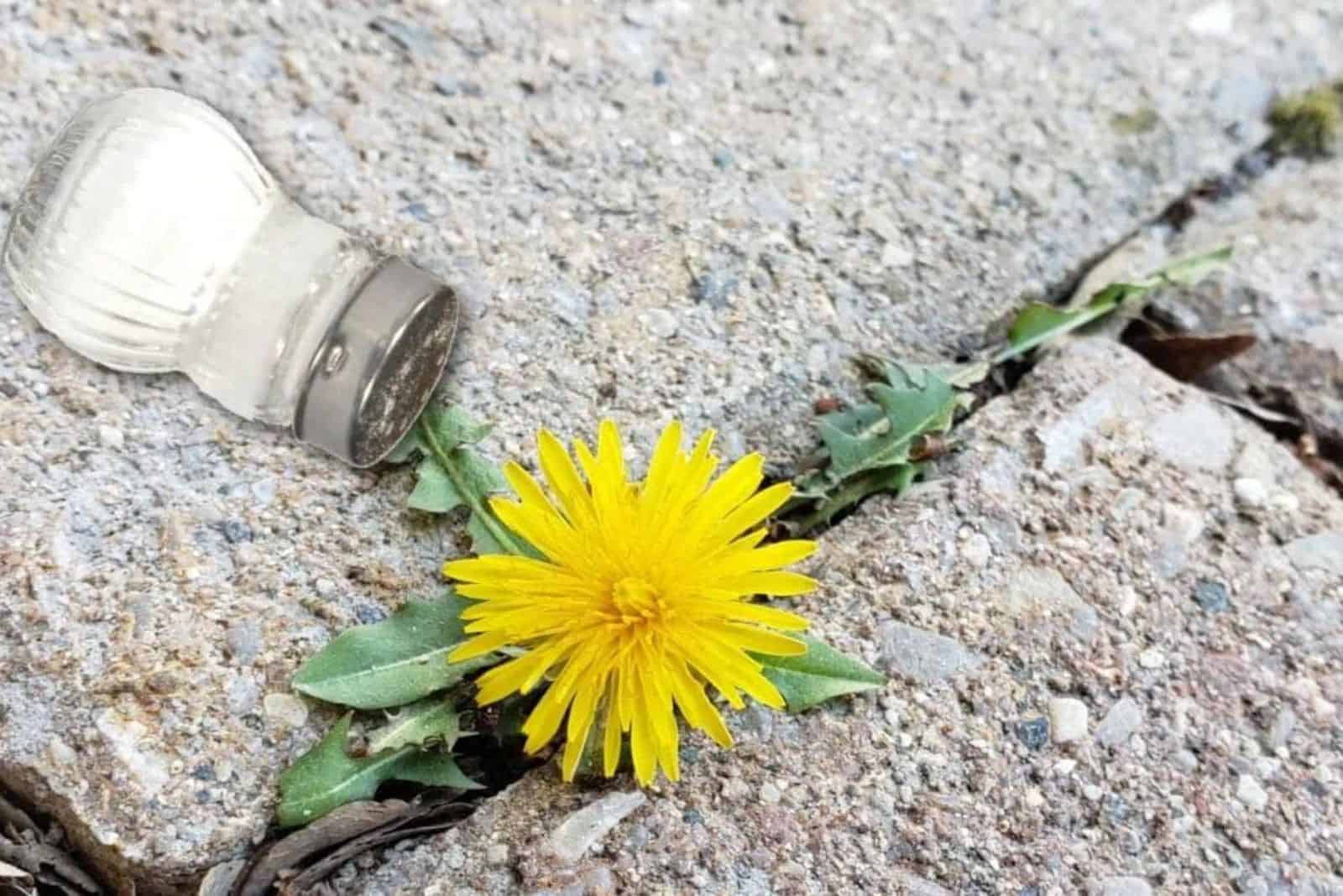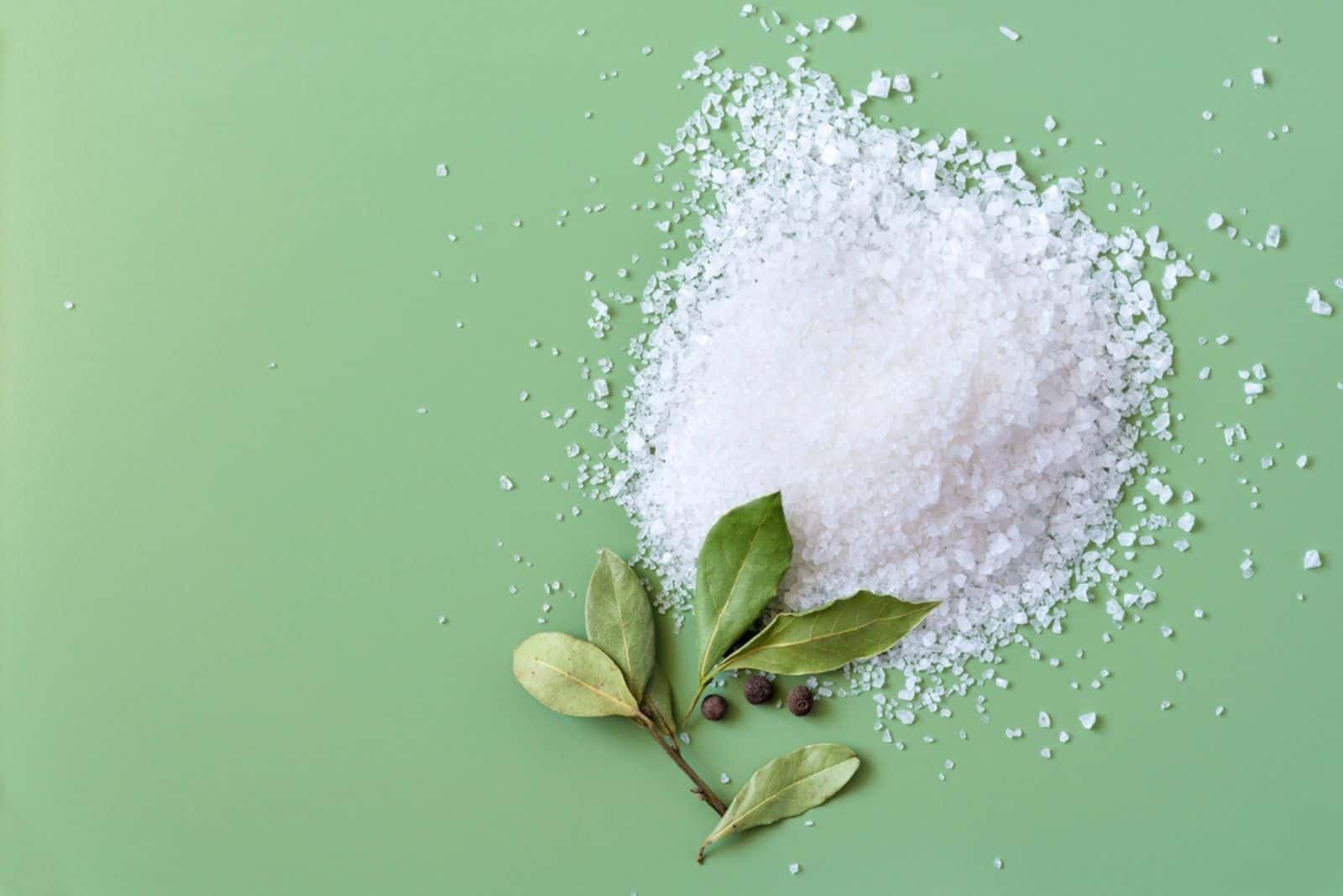How many times have you heard that a chemical herbicide is the only way to remove weeds? I prefer to say it’s the faster way since it definitely isn’t the only one!
There has been a lot of discussion on using salt to kill weeds so I decided to reveal the truth and tell you if this is really a good idea.
I’ll also show you how salt works on weeds, its benefits and drawbacks, and much more.
No time to waste, let’s get started!
How Does Salt Kill Weeds?
We’re mainly interested in using table salt as a weed killer. It consists of sodium chloride and, when applied to plants, this element disrupts the water balance in plant cells. This results in dehydration.
You may have heard that we should pay attention to how much sodium we consume. Too much salt in our bodies can lead to high blood pressure, which can result in heart disease, kidney failure, or other serious issues.
What happens when we add salt to the soil where the weeds grow? In the course of 10 days, sodium chloride will inhibit soil structure, deplete nutrients, and make the soil more compact, which results in less porosity and poor water flow. (1)
Instead of water, weeds will uptake the sodium, and the roots will burn and discolored foliage will appear. Weeds may completely die back since they don’t have access to water.
I have to mention that salt works best when dissolved in water and applied to juvenile weed plants. They most likely won’t kill larger plants, such as ivy.
Using Salt As A Non-toxic Herbicide For Killing Weeds
We often use products that will solve certain issues quickly without thinking about their potential consequences. That’s the case with chemical herbicides.
They’ll act fast and kill weeds but think of all the threats these products pose for humans and animals. Chemical products, including herbicides, can affect our skin, ingestion system, and respiratory system.
Unfortunately, these products aren’t environmentally friendly, which means we must seek alternatives whenever possible.
One of the alternatives to chemical herbicides is salt. It’s not as harmful to humans and pests and you can even use it on edible plants in your garden. This is a natural substance and won’t leave any harmful residue on your veggies, fruits, or herbs.
Of course, salt may not act as fast as chemical herbicides and you might need to do physical labor, but it is effective, and a way cheaper and safer option.
Are There Any Drawbacks?
If salt is that great, why isn’t it used by every gardener? Well, nothing is perfect in this world and salt isn’t an exception.
The good thing about salt is that it will kill weeds, but the bad thing is that it can kill other plants in your garden.
Of course, this refers to a high amount of salt and over frequent application. The problem with too much salt is that it can disrupt the pH balance of the soil. The consequences of salt buildup in the soil are water loss, dehydrated roots, and stunted plant growth.
Rainfall can wash sodium away to other parts of your yard and be detrimental to all healthy plants.
The soil will no longer be fertile and it may take a few years for the sodium to ‘leave’ the soil. Only then will you be able to grow new plants in that area.
It’s always better to use salt in smaller quantities and remove young weeds.
Which Salt Works Best?
The most common question I get regarding the use of salt on weeds is which type of salt to use.
You need to use salts made of sodium chlorine; rock salt and table salt are the best choices. Even though they have undergone a different purification process, they contain the same amount of sodium chloride.
Make sure you don’t apply high amounts of rock salt or table salt because, as mentioned, too much sodium can kill other plants in your garden.
Some gardeners asked me if Epsom salt can be used for killing weeds and my answer is no. It consists of magnesium sulfate, which isn’t efficient on weeds unless you use extremely high amounts.
How To Apply
Salt is often used in combination with vinegar and dish soap and they make an excellent weed killer.
If there aren’t many weeds on your property and soil health isn’t too important in that area, using salt and water is enough.
All you need to do is to mix one part salt with 3 parts water and apply it around the base of the weed you intend to remove.
You can apply this solution a couple of times, i.e., until the weeds are gone.
As mentioned, this solution is safe to use near edible plants because it won’t leave harmful residue. However, it can affect the overall health of your plant, so it would be better to apply a solution where there aren’t any plants and soil health isn’t of much importance.
For instance, if you need to remove weeds from gravel, this solution will work well. If the weeds are near plants you grow as ornamentals or edibles, it would be best to find another solution.
What’s The Best Way To Control Weeds Naturally?
You’ve seen the benefits and drawbacks of salts, and if this method doesn’t meet your requirements, the most straightforward method is to remove the weeds manually.
Gardeners typically avoid it because it can be labor intensive, but the truth is that it’s the safest method and won’t have an impact on the environment or affect other plants in your garden.
To control weeds simply purchase a hand weeder and slowly start de-weeding. Even though it takes time and effort, it’s highly rewarding!
If used as recommended, salt is an efficient method for removing weeds. I highly suggest it to those who have weeds in some areas of the garden where soil health doesn’t play a major role. Say goodbye to weeds, and say hello to a neat and captivating landscape!
References
1. Managing Pests in Gardens: Environmental Factors: Nutrient and mineral excesses, salinity, and salt toxicity—UC IPM. (n.d.). https://ipm.ucanr.edu/PMG/GARDEN/ENVIRON/salttoxicity.html#:~:text=Sodium%20may%20damage%20roots%20through,water%20needed%20for%20plant%20growth.




